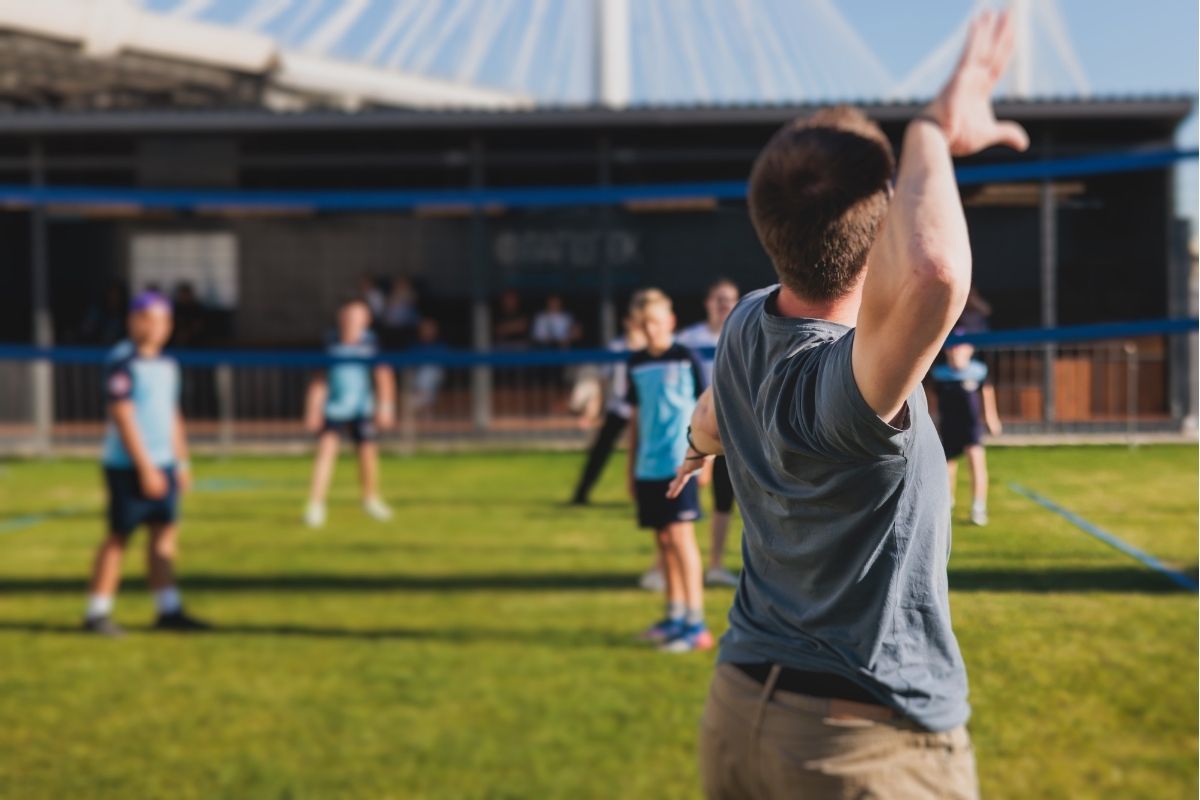Engaging in basketball goes beyond shooting hoops and scoring points. It’s about teamwork, strategy, and understanding the game’s dynamics. For the up-and-coming basketball enthusiasts, learning about the distinct roles played by different basketball positions is a crucial first step towards mastery. In this comprehensive guide, we’ll help budding basketball players identify the best position that complements their skills and ambitions on the court.
Understanding Basketball Positions

Basketball isn’t just about dribbling or shooting; it’s a complex sport that requires a variety of skills and roles. Each position on the court demands different responsibilities and playing styles, which are tailored to a player’s strengths. Here’s a closer look at basketball’s five primary positions:
The Point Guard (PG)
The point guard is often the leader on the court, responsible for setting up plays and directing the team’s offense. They should be fast, agile, and have excellent ball-handling skills.
The Shooting Guard (SG)
Commonly known for scoring, shooting guards must be strong shooters from long range and possess good dribbling skills. They often play a key role in both the team’s offense and defense.
The Small Forward (SF)
Small forwards need to be versatile, serving as a bridge between the guards and the big men. They should be able to shoot from the outside and drive to the basket when necessary.
The Power Forward (PF)
Power forwards play close to the basket, requiring strength, agility, and the ability to rebound and defend against both small and big players. They also contribute to the team’s scoring in the paint.
The Center (C)
Centers are usually the tallest players on the team and are situated near the basket. Their primary responsibilities include rebounding, shot-blocking, and scoring close to the hoop.
Assessing Personal Skills
Now that you’ve learned the roles, it’s time to evaluate your strengths and weaknesses. By doing so, you can align yourself with a position that optimizes your abilities.
Identifying Your Strengths
Begin by noting what you’re good at. It could be your speed, ball-handling, shooting accuracy, or your ability to defend. These attributes will be important in determining which position you are best suited for.
Recognizing Weaknesses
Being honest about your deficiencies is key to personal and positional development. Whether it’s a lack of height, speed, or stamina, understanding what needs improvement can help you choose a position that can mitigate those weaknesses.
Consult with Coaches and Mentors
Seek feedback from those who have experience and knowledge of the game. Coaches and seasoned players can provide valuable insights that you may not have considered.
Tips for Finding the Best Role
Once you’ve gained clarity on your basketball skills, it’s time to match them with the roles on the court. Here are some tips to help you get started:
Practice Position-Specific Techniques
If you aspire to be a point guard, work on your passing and decision-making skills. Shooting guards should focus on their shooting form, while small forwards can practice both mid-range shots and drives to the basket. Power forwards and centers can concentrate on post moves, rebounding, and interior defense.
Consider Your Mental Game
Basketball is as much a mental sport as it is physical. Each position requires a certain mindset. Point guards must be able to remain calm under pressure, while centers benefit from an aggressive, determined approach.
Be Open to Versatility
While knowing your primary position is important, don’t limit yourself. Players who can adapt to different roles and playstyles make themselves invaluable to their teams.
Benefits of Playing In Your Best Position
Discovering and playing to your strengths on the court can lead to several advantages:
Improved Performance and Team Cohesion
Playing in the right position enhances your performance, making you more effective at contributing to the team’s success. It also improves the team’s overall cohesion when each player fulfills their role.
Personal Satisfaction and Growth
When you excel in a position that aligns with your abilities, it’s not just the team that benefits — you do too. Personal satisfaction and growth come from knowing that you are playing to the best of your ability.
Recognition and Opportunity
Coaches and scouts are always looking for players who fit certain positions, and playing to your strengths increases your chances of being recognized and given opportunities to advance at higher levels of play.
An Overview of Basketball
Basketball is a beautiful sport that rewards both individual talent and collective effort. By understanding the diversity of roles on the court and identifying the one that suits you best, you can become a more effective and fulfilled player. Take the time to explore the aspects of each position, and most importantly, enjoy the game and the continuous process of improvement. Whether you’re a budding point guard or envision yourself as a towering center, remember that each position is vital, and the sport remains a grand stage for your unique performance.
Become an Elite Basketball Player at LuHi
You’ve heard the news, you’ve seen the stats — if you’re looking to take your basketball skills to the next level, there’s no place greater than LuHi to do so. LuHi’s basketball program is where future stars are molded. Off the court, you become disciplined; on the court, you become untouchable.
To learn more about LuHi’s basketball program and how to enroll, please visit our website, contact us today, and sign up for our program NOW!




